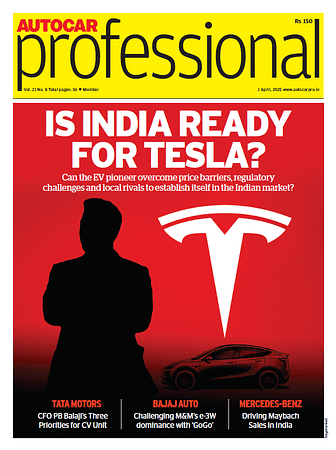ARAI to collaborate with Vikram Sarabhai Space Centre to develop lithium ion car batteries
The association will develop and test batteries for use in electric vehicles and hybrid electric vehicles and then offer to transfer the technology to manufacturers for mass production to bring down the cost of the batteries.
Automotive Research Association of India (ARAI) has joined hands with the Vikram Sarabhai Space Centre (VSSC) to develop a battery for passenger cars using technology which is in use to make batteries for space vehicles.
According to ARAI Rashmi Urdhwareshe, director of ARAI, the association will develop and test batteries for use in electric vehicles and hybrid electric vehicles and then offer to transfer the technology to manufacturers for mass production to bring down the cost of these batteries significantly.
The project envisages leveraging strengths of both ARAI and VSSC, Urdhwareshe said, adding that the focus of the research will be to develop technology in EV / HEV applications for Indian automotive industry and facilitate promotion of green mobility platform, also promoting import substitution and the government’s mission of ‘Make in India’, she said.
Urdhwareshe added that VSSC has successfully conducted laboratory level testing to find that the technology used in making batteries for space applications is suitable for automobile sector applications. ARAI will work towards testing of the technology at vehicle level and will come out with a prototype in about one year’s time.
“Thereafter the industry should come forward to manufacture these batteries for supply to automobile manufacturers keeping in mind the affordability aspect,” she added.
Recommended: Lithium ion battery capability developing in India
In addition to developing the battery, ARAI will also develop battery management system and thermal management system for the battery to make it safe for the vehicles and passengers.
Dr K Sivan, director of VSSC, said the concept of using for automobiles the same battery as is used for space vehicles is proved and now with the collaboration with ARAI, it will be tested for actual use in vehicles. The third stage will be to pass on the technology to a mass manufacturer when complementary technology aspects and volumes will determine the affordability of the battery. The intention is to bring down the cost of the battery to less than a tenth of what an imported one costs, he said.
“A number of technologies and materials which we use in space research are suitable for use in human societies provided the mass manufacture of products using these technologies bring costs to an affordable level,” added Dr Sivan.
ARAI also has plans to set up an automotive industry museum which will display the journey of India’s automobile industry over the years. The blueprint for the project is ready and the institute is in discussions with various stake holders to finalise the plan, as per Urdhwareshe. Besides, the association is also preparing to undertake a data collection project for on-road measurement of pollution from diesel vehicles and old vehicles.
Also read:
- ARAI turns 50, opens all-new homologation and tech centre at Chakan
- Government looks at retrofitted electric buses to curb pollution
- Electric vehicles likely to get tax-free status in Maharashtra
RELATED ARTICLES
Rajiv Bajaj reappointed MD and CEO of Bajaj Auto for five-year term
Bajaj Auto’s Board of Directors has approved the re-appointment of Rajiv Bajaj as the company’s MD and CEO for another f...
JSW MG Motor launches Comet EV Blackstorm edition
The key highlights of the Comet EV Blackstorm, which is now the top-end variant, are its ‘Starry Black’ exterior along w...
Maruti Suzuki begins production at new Kharkhoda plant
Phase 1 of the Kharkhoda plant will have an annual production capacity of 250,000 units and produce the Brezza compact S...






 By Autocar Professional Bureau
By Autocar Professional Bureau
 04 Jan 2016
04 Jan 2016
 9485 Views
9485 Views













 Ajit Dalvi
Ajit Dalvi

